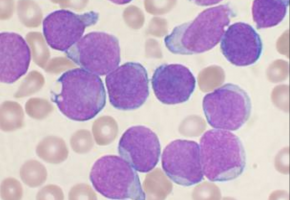
A research team led by the University of Kent and Goethe-University Frankfurt am Main, has solved an almost 40-year old mystery in leukaemia therapy and the drug nelarabine.
Acute lymphoblastic leukaemia (ALL) is the most common cancer in children.
There are two types of ALL: B-ALL, which resembles B lymphocytes (B-cells); and T-ALL, which resembles T lymphocytes (T-cells).
Since the 1980s, it has been known that the drug nelarabine is effective against T-ALL but not against B-ALL, for reasons unknown.
The new research study now reveals the reason why, and how this can change leukaemia treatments; thanks to the enzyme called SAMHD1.
The research shows that SAMHD1 is present only at low levels in T-ALL, compared to its greater-level of presence in B-ALL cells.
Hence, SAMHD1 protects B-ALL cells, but not T-ALL cells, from the anti-cancer effects of nelarabine.
The findings have crucial practical implications.
There are rare cases of B-ALL in which leukaemia cells display low SAMHD1 levels and thus may benefit from nelarabine treatment.
Additionally, there are also T-ALL cases in which leukaemia cells have high SAMHD1 levels, which are unlikely to react to nelarabine.
Hence, the enzyme SAMHD1 is a biomarker with the potential to tailor nelarabine treatment better to the needs of individual ALL patients.
Dr Mark Wass, an author of the study from the University of Kent, said: 'This work solves an almost 40-year old mystery in leukaemia treatment. The results could immensely impact the effectiveness of particular nelarabine therapy and open other doors of understanding in the effort again this disease.'
Source: University of Kent